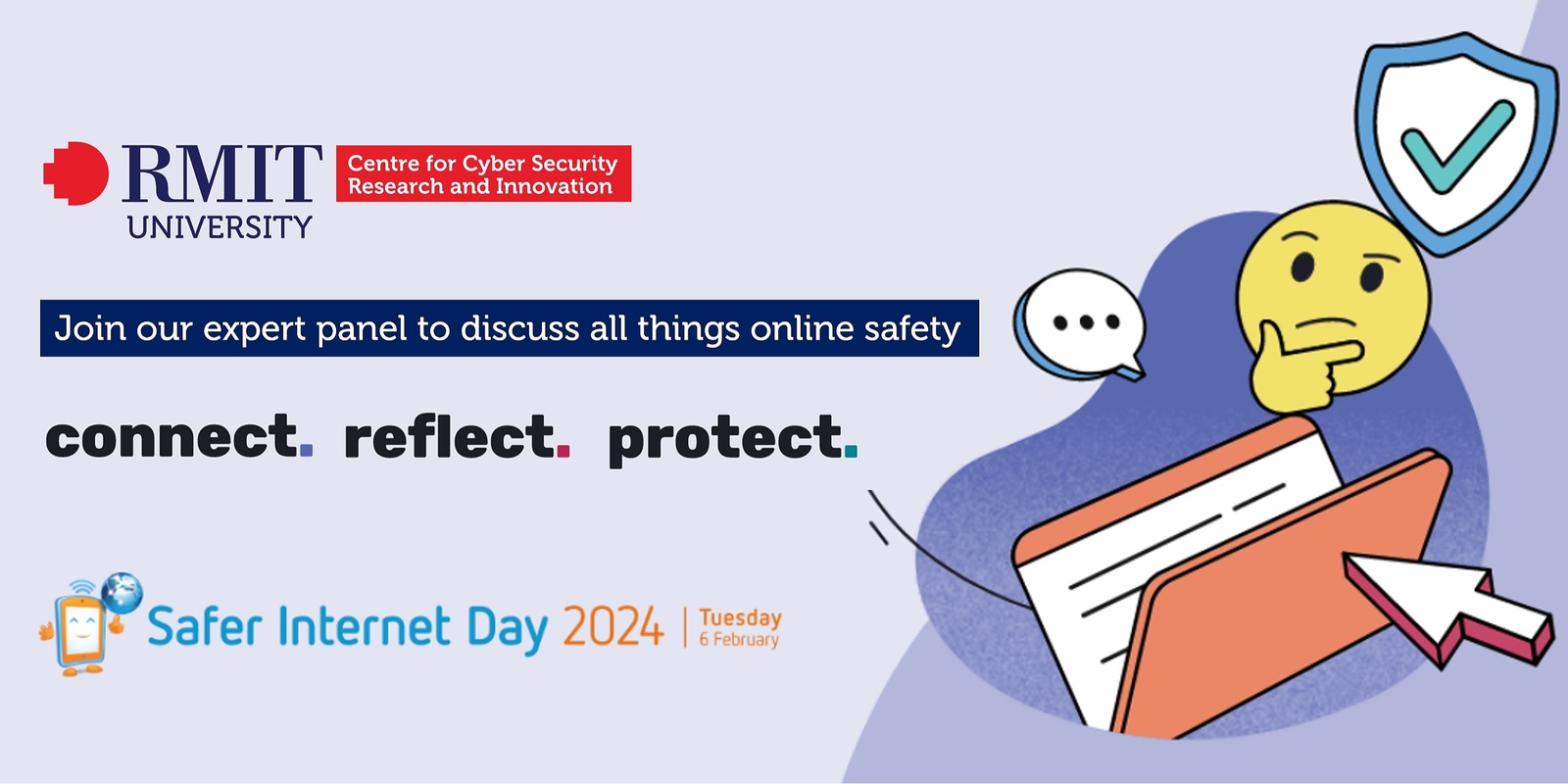Safer Internet Day - RMIT Centre for Cyber Security Research and Innovation
Event description
Tuesday 6th February 2024 marks Safer Internet Day. This worldwide initiative brings together communities, families, schools and organisations to help create safer online spaces.
We have seen technology evolve dramatically over the past 3 years and the benefits have been huge. These digital developments have also exposed us to many risks with real-world impacts, making online safety awareness even more important.
RMIT CCSRI is excited to share with you the ways in which we are contributing to a safer online environment. In 2024 we wanted to focus on individuals online behaviour. In this event we will share details of our exciting Safety by Design short course that RMIT CCSRI has developed as part of RMIT Digital3, with The eSafety Commissioner. You'll also hear our expert panel speak about privacy, online reputation, the ways in which individuals can experience harm online, and the ways in which we can all contribute to a safer internet.
Event Details:
- Date: Tuesday 7 February
- Time: 12.30pm - 1.30pm
- Microsoft Teams Webinar
Meet our Panelists
Nicola Henry is a Professor and Australian Research Council Future Fellow in the Social and Global Studies Centre at the RMIT University. Her research investigates the prevalence, nature and impacts of sexual violence, sexual harassment and technology-facilitated abuse. Nicola has provided expert advice to Meta, Twitter, TikTok and Google regarding their policies and practices on image-based abuse. Nicola is also a member of the eSafety Commissioner's eSafety Advisory Group.
Matt Warren is the Director of the RMIT University Centre for Cyber Security Research and Innovation (CCSRI) and a Professor of Cyber Security at RMIT University. He has held roles such as Deputy Director of University Research Centre, Head of School, Deputy Head of School, Program Leader for several programs during his tenure at Deakin University. Matt is a researcher in the areas of Cyber Security and Computer Ethics.
Arathi Arakala received her Ph.D. degree from RMIT University, Melbourne, in 2008. After a series of postdoctoral positions with RMIT University and Monash University, she is currently a Lecturer of Cybersecurity with the Discipline of Mathematics, RMIT University. Her area of research interest includes physiological and behavioural biometric authentication, modeling of online user behaviour for cybersafety, and encryption algorithms that enable zero trust computation.
Andrew Hine - Andrew Hine double scholar MEng Oxford University and participant of RMIT Activator accelerator and is passionate about improving trust online. His novel Startup Reputationaire, working towards 7 of the UN's 17 sustainability goals, empowers individuals to overcome lack of local (work/rental) references, local work experience, local credit scores - especially those from more diverse backgrounds. It also allows organisations to request alternative "peer reviewed reference checks" on individuals, getting verified soft and job skills as an additional data point. In short, it fast tracks proof of trust, a commodity very much lacking online today.
Tickets for good, not greed Humanitix dedicates 100% of profits from booking fees to charity
